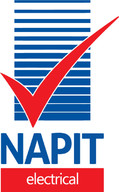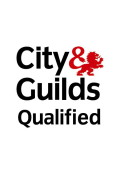Introduction
Finding an honest, competent electrician is not always easy because a significant minority of sharks and cowboys operate at the fringes of the marketplace just waiting for the opportunity to rip you off. The bad guys are often alarmingly incompetent and are invariably unregistered and uninsured. Safety is not their prime consideration and they’re totally unperturbed by the consequences of their actions/inactions. Unfortunately, the only thing you’re guaranteed when you employ these people is to pay more than you should in one way or another. Sometimes the cost can be truly prohibitive!
The bad guys get away with murder because they understand that most people are hamstrung by limited electrical knowhow and unfamiliar trade jargon. Rogues exploit this weakness by talking a good job; substituting hyperbole for knowledge to impress potential customers and deflect scrutiny. At the outset they’re often disarmingly charming and superficially obliging. They’ll promise the Earth to get your business. But beware! Once you’re roped-in the sucker punches will follow leaving you breathless with indignation and much lighter of wallet.
To help you differentiate wheat from chaff we’ve highlighted some widely practiced scams that plague the electrical industry. Hopefully, this information used in conjunction with our advice and tips will help you to avoid being taken for a mug when employing an electrician to work on your property.
1: Undercharging
Some cowboys and sharks attract customers with half or hourly rates that create the impression of a value for money service. However, once you’ve taken the bait and the job is underway they’ll inevitably discover that more work needs to be done than was originally envisaged which, correspondingly increases the time needed to complete the project and the subsequent amount you must pay. The work-style of these practitioners is often chaotic and unpredictable. If and when they turn-up, they may rush jobs to get to the next customer or alternately they’ll stall for time when less busy. Getting them back to fix sub-standard work when they’ve been paid will prove a nightmare and the more audacious exponents may even use call-backs as an opportunity to sell you additional services to further increase their profits.
Cowboys Kill - Gallery 1
2: Overcharging
At the opposite end of the spectrum are those outfits that charge exorbitant hourly rates. They justify such fees on the basis that you’re paying for a brand or franchised name with wide network support. However, what you don’t get told is that the person carrying out the work is often a sub-contractor, working across trades, with insufficient knowledge or experience to carry out all aspects of a particular project. For example, in conjunction with their own work, an unqualified kitchen fitter or plumber undertakes to integrate an under-floor heating system with an existing electrical installation. Unsurprisingly, illegal activities of this type result in sub-standard and dangerous workmanship and invalidate manufacturers’ equipment warranties and/or any electrical certification issued by primary contractors or other third parties.
Our advice: If you trawl through enough websites you’ll observe that hourly rates range from as little as £15 to upwards of £90 per hour. Not unnaturally, customers may be tempted to go with the company that advertises the lowest figure. However, a price that’s too keen often indicates that an electrician is poorly qualified or not properly accredited. Good electricians with recognised qualifications are professionals and this is rightly reflected in their hourly rates and call out charges. Even so it is better to avoid paying hourly rates at all if possible. A CPS registered electrician should not have a problem supplying you with a fully itemised quotation that accords with a pre-agreed project brief.
3: The Rewire
Unscrupulous electricians love this particular scam because it’s very profitable for them. Typically, a rogue walks into an older property that has not been refurbished for some time and following a perfunctionary “health-check” declares the installation to be non-compliant and in need of an immediate rewire. What may not be made so clear is that a complete rewire could take several weeks, will involve extensive disruption and cost thousands of pounds to complete. The customer may have to move out of the property whilst the works are carried out and will certainly need to re-plaster and redecorate afterwards.
Our advice: Reputable electricians work on the premise that an electrical installation is unlikely to need a complete rewire merely because it is not contemporary. In the absence of valid documentation they will likely recommend that a periodic inspection is undertaken to determine whether an electrical installation is safe for continued usage. A periodic inspection consists of a series of proscribed inspections and tests whose results and findings are recorded on an Electrical Installation Condition Report. An EICR is either satisfactory or unsatisfactory. If unsatisfactory it will list those departures from the current amended 17th Edition of the IEE Wiring Regulations in order of severity alongside those remedial actions that will need to be carried out to bring the installation up to an acceptable standard.
A BASIC HEALTH-CHECK is NOT THE SAME THING as a PERIODIC INSPECTION. The latter is a labour intensive process that takes several hours to complete and can only be conducted by 2391 qualified, scheme-enrolled electricians using approved test equipment. Although most electricians charge a fee for this service, periodic inspections frequently save customers money in the long run. For example, supply cables buried in the fabric of the building may be reusable thus avoiding additional material costs, structural damage, repair and redecoration. Some firms like PIRUS Electrical may even offset all or part of the cost of an inspection against any ongoing works that materialise.
Conversely, a basic health-check is of extremely dubious value even if the service is allegedly free as it produces no meaningful results and has no basis in law. It might sound the business but is in fact a device designed to justify leveraging money from you.























